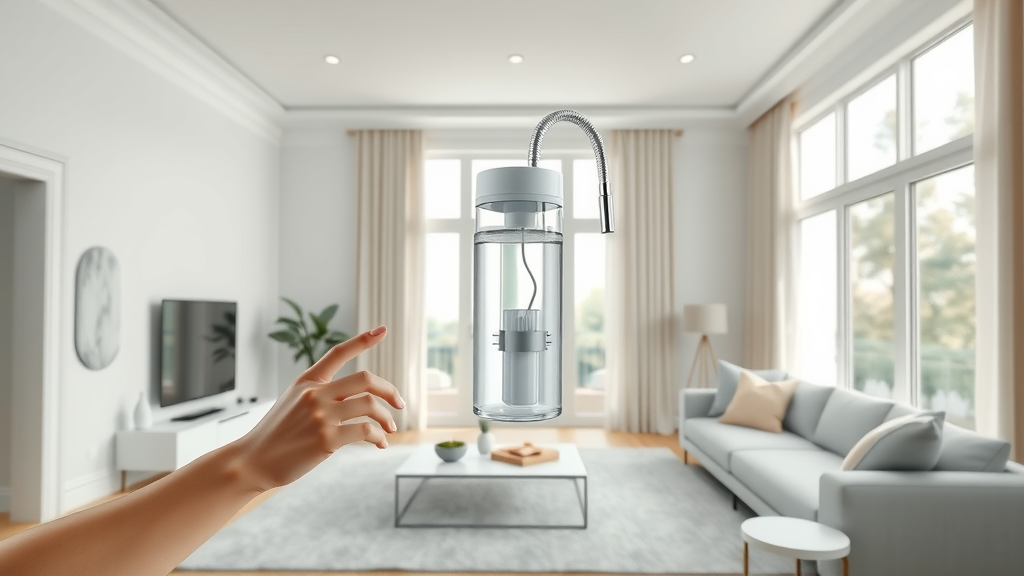
Unlocking the Secret to Glowing Skin: The Hydration-Collagen Connection
If you're chasing that dewy, youthful glow, the key might be simpler than you think. Staying hydrated isn't just about drinking enough water – it’s about nourishing your skin, encouraging collagen production, and reviving its natural bounce. But what exactly is collagen, and how does hydration play such an integral role in its effectiveness?
Understanding Collagen: The Skin’s Best Friend
Collagen, often referred to as your skin’s best friend, is a protein that comprises approximately 75% of our skin structure. It's essential for maintaining elasticity, firmness, and preventing the wrinkles that show up as we age. With collagen production declining over the years, it becomes even more crucial to adopt habits that support this vital component of youthful skin. One of the best ways? Staying well-hydrated.
The Power of Hydration for Collagen Production
You may wonder how drinking water translates to better skin. Here are three compelling reasons why hydration should be at the forefront of your skincare regimen:
Happy Skin is Hydrated Skin: Think of water as a natural moisturizer. Hydrated skin looks fuller, smoother, and more resilient. When you drink enough water, your skin can maintain its elasticity because it’s less prone to dryness and the appearance of fine lines. This way, water and collagen work hand in hand to enhance your skin's overall appearance.
Water is a Nutrient Transporter: Adequate hydration is essential for nutrient absorption in your skin, including critical collagen-building nutrients like vitamin C and amino acids. Without sufficient water intake, your skin’s ability to utilize these nutrients suffers, limiting collagen production and impacting skin health.
Detoxification and Collagen Preservation: Our skin faces daily challenges from environmental factors that can damage collagen and lead to premature aging. Staying hydrated supports the body in flushing out toxins that can cause oxidative stress, thereby safeguarding existing collagen and promoting the synthesis of new collagen.
How Much Should You Drink? Tailoring Your Hydration
The general recommendation is to aim for about eight 8-ounce glasses of water daily, but this can vary based on personal factors like activity level, environment, and overall health. If you're active or live in warmer climates, you may need more fluids to keep your skin hydrated. Simple signs like dry skin or chapped lips can indicate it’s time to drink more water.
Eating Your Way to Hydration: Foods that Support Collagen
Staying hydrated isn’t just about what you drink; your diet also plays a crucial role. Incorporate hydrating foods into your meals—think cucumbers, watermelons, and leafy greens—to enhance your body’s moisture levels. These foods not only hydrate but also deliver nutrients beneficial for collagen production. Additionally, consider adding sources of collagen, like bone broth or supplements, into your routine for that extra boost.
Caffeinated Beverages: How Do They Fit In?
Many of us enjoy coffee or tea as part of our daily routines, but moderation is key. While these beverages are not direct substitutes for water, they have their benefits. The trick is to balance them with enough water to counteract their dehydrating effects. If you feel that you may struggle with staying hydrated, aiming for less caffeine or choosing herbal teas could help.
Taking Action for Your Skin's Health
If achieving that glowing complexion is your goal, remember that hydration plays a pivotal role in supporting collagen production. So raise your glass, drink up, and give your skin the loving care it deserves. Want to dive deeper into this topic and discover even more tips for radiant skin? Join our community, and let’s unlock the secrets to health and beauty together!
 Add Row
Add Row  Add
Add 




Write A Comment